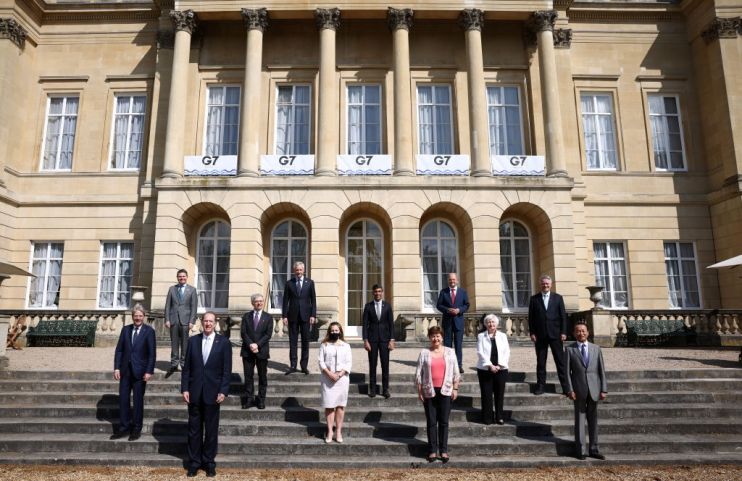G7: Building back better will need a truly global approach to finance

Over the weekend G7 finance ministers and financial leaders from across the world came together in London for arguably their most important meeting since the 2008 financial crisis.
Top of their packed agenda was of course the recovery from COVID, against the backdrop of environmental issues and the challenges of reaching net zero emissions.
Much has been made of the phrase “build back better”, and it is true that the pandemic has provided us a unique opportunity to work more closely together on issues that affect us all: climate change, cross-border data and capital flows, and the growing threat of cyber-crime, to name but a few.
Read more: Boris Johnson calls on G7 leaders to vaccinate the globe by end of 2022
With this in mind, a report has been sent to G7 ministers by the International Regulatory Strategy Group (IRSG), a practitioner-led body of leading UK-based figures from the financial and professional services industry co-sponsored by the City of London Corporation and TheCityUK.
This publication makes suggestions in relation to the global regulatory landscape, sustainable finance and digital agenda. It highlights challenges hindering global trade and recovery, notably regulatory fragmentation, emerging protectionism, differing international standards and the problem of cyber-crime.
There’s no denying that these are big, complicated and dare I say political issues that will require full and frank discussions to solve. But they are also matters that affect us all, and areas where consensus will ultimately aid the global recovery.
It’s therefore very encouraging to see moves by the G7 towards mandatory climate related financial disclosures based on the TCFD framework. Similarly, I am pleased to see the G7 taking steps to tackle illicit finance and environmental crimes.
Read more: Explainer: What is the G7 global tax deal and what will it mean?
Going forward, I hope we can also get consensus across the global finance community about we define social, or ‘S’ factors, of ESG, which can be even more difficult for investors around the world to quantify. That’s why today the IRSG has launched another report in partnership with KPMG, which calls for a global approach to social principles and standards to deliver better outcomes and make markets more resilient.
One possible framework outlined in the document is a ‘floor approach’, with global regulators agreeing minimum social standards that would be applicable in all cases and transactions, with mechanisms put in place to uplift these as required. International banks and financial institutions could also act as a catalyst of change by applying consistent standards across all jurisdictions they operate in to raise social standards.
The IRSG report recommends that a lead social principle- perhaps on modern slavery – could be chosen to prioritise and narrow focus by finding common ground across jurisdictions, with an ambassador appointed to lead this agenda.
Lots of food for thought, and I encourage all readers to take a look at both reports.
COVID has been one of the biggest peacetime challenges in living memory. But if the pandemic has taught us anything, it’s the importance of international cooperation in tackling global challenges.
With the upcoming G7 summit in Cornwall and COP26 in Glasgow later this year, the UK – as a champion of free and open trade – has an opportunity to show continued leadership in promoting global regulatory cooperation and driving forward the green, sustainable finance agenda.
Read more: Entrepreneurs and businesses – not politicians – will drive ESG forward
